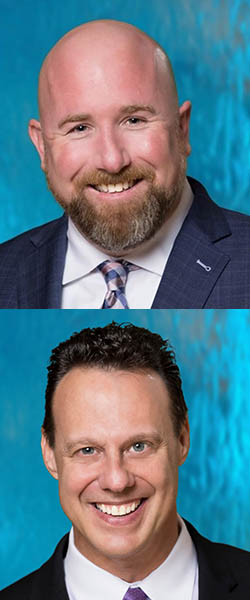October 15, 2025 | 12:00 p.m. – 1:00 p.m. ET
Few organizational leaders have a clear understanding of trauma’s pervasive influence or how they can help employees address, manage and overcome what we refer to as “experienced trauma.” However, there exists an approach that transcends traditional notions of management, one that acknowledges the profound impact of trauma on individuals and organizations. It’s a leadership approach that seeks to heal, empower and foster growth: trauma-informed leadership.
Attendee Takeaways:
1. Understand the prevalence of trauma, and how that can impact the emotional and psychological needs of individuals and groups
2. Learn how to apply the four R’s (Realize, Recognize, Respond and Resist) during courageous conversations and interactions with employees to ultimately resist re-traumatizing individuals and/or groups
3. Strengthen awareness of the power of empathy, safety and trust and how cultivating those can have both human and financial impact
4. Gain knowledge on how developing a trauma-informed organization can give your association a true competitive advantage in recruiting, retention and engagement
Presenters

Ryan Gallik, Co-Founder, The Mental Hygiene Project
Michael Stahl, Managing Partner, The Mental Hygiene Project
Ryan is an award-winning speaker and author of Silent Mayday, The Clinician's Guide to Working with First Responders. He is managing partner of The Mental Hygiene Project ®. Ryan has 20 years of hands-on experience as a firefighter, EMT, paramedic and fire science educator. He has developed peer support and Critical Incident Stress Management (CISM) programs and has worked with clinical professionals including psychiatrists, psychologists and licensed mental health counselors to create initiatives and partnerships with industries to find post traumatic growth.
Michael is an international speaker and organizational transformation specialist who has delivered more than 2,500 paid speeches around the world in the last 25 years. He is Managing Partner of The Mental Hygiene Project®. As a aster Trainer with the Harrison Behavioral Traits Profile, Michael understands the “psychological eco-system” of both performance and how stress impacts mental health and results. He contributed to the best-selling book, 101 Great Ways to Improve Your Life and has appeared on a number of media outlets including CNN Financial News discussing the effects of burnout for individuals and organizations.









